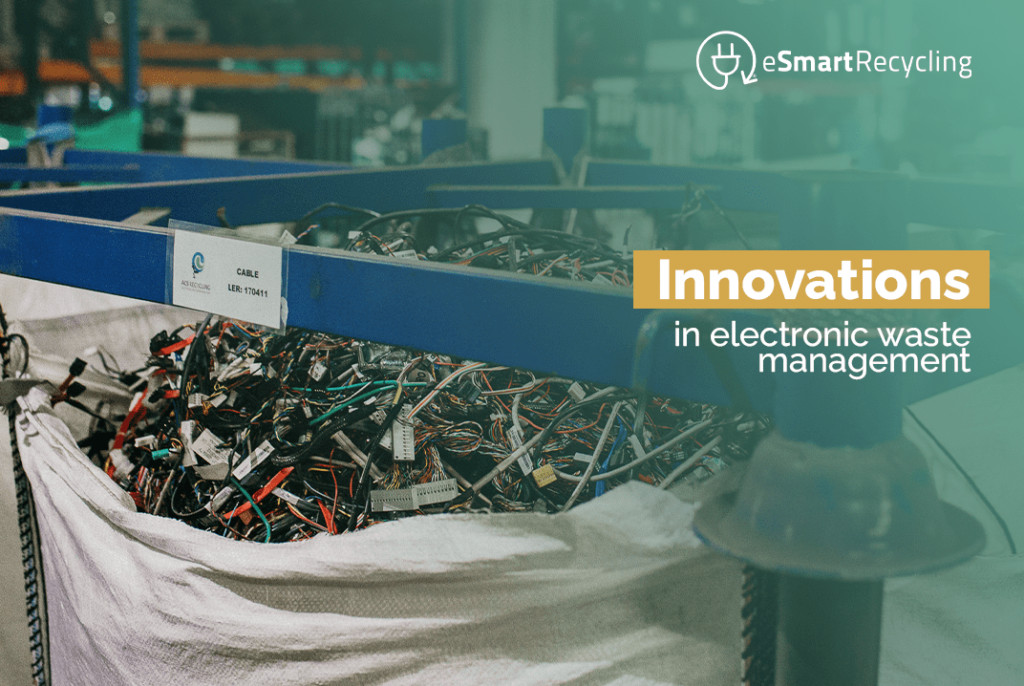Innovations In Electronic Waste Management

Living in a digital age has brought numerous technological advancements that have greatly improved our lives. However, these advancements also come at a cost, as the rapid pace of innovation results in an alarming amount of electronic waste.
With the ongoing growth of electronic devices, there’s an urgent need for innovative technologies to effectively manage and address this electronic waste. In this article, we’ll explore some of the revolutionary innovations in electronic waste management and discuss the future of this industry.
The need for innovative technologies
The increase in electronic waste poses a significant threat to the environment and human health. Improper disposal of electronic devices leads to pollution and the leaching of toxic materials into soil and water, causing severe contamination. It’s estimated that over 50 million metric tons of electronic waste are generated worldwide each year, with only a small percentage being recycled or properly disposed of.
To tackle this issue, innovative technologies have emerged that seek to revolutionize how we manage and process electronic waste. These technologies focus not just on recycling but also on maximizing resource recovery and minimizing the environmental impact of electronic waste.
Technologies for electronic waste management
- Advanced separation techniques: Traditional methods of recycling electronic waste were often labor-intensive and inefficient. However, advancements in separation technologies, such as robotic systems and artificial intelligence, have significantly improved the process. These technologies can now identify, extract, and sort valuable materials from electronic waste, enabling proper recycling and resource recovery.
- Biotechnological solutions: Emerging technologies like bioremediation offer environmentally friendly alternatives for treating electronic waste. Microorganisms are used to break down hazardous components and extract valuable metals from electronic waste. This process not only helps reduce environmental impact but also offers a more sustainable approach to electronic waste management.
- Smart waste collection: Internet of Things (IoT) technology is being used to create intelligent waste collection systems. Smart sensors installed in electronic waste containers can monitor fill levels and optimize waste collection routes, reducing fuel consumption and improving efficiency. This technology ensures timely waste collection and helps prevent illegal dumping of electronic waste.
The future of electronic waste management
The future of electronic waste management looks promising, with ongoing research and development in various innovative technologies. Here are some trends that hold great potential:
- Circular economy: Transitioning to a circular economy aims to keep resources in use for as long as possible. This approach focuses on the design, repair, reuse, and recycling of products. By adopting a circular economy model, the entire lifecycle of electronic devices can be optimized, significantly reducing the generation of electronic waste.
- Material recovery: With the growing demand for rare earth metals and other valuable resources, focusing on material recovery from electronic waste is crucial. Advanced techniques, such as hydrometallurgical and biotechnological processes, can extract valuable metals from electronic waste, enabling their reuse in new electronic devices.
- Blockchain for traceability: Blockchain technology offers a promising solution for the traceability of electronic waste. By implementing blockchain systems, the entire lifecycle of electronic devices can be recorded, ensuring transparency and accountability in electronic waste management. This technology can help track and verify the proper disposal and recycling of electronic waste, reducing illegal dumping and environmental pollution.
Latest technologies in the waste management industry
In addition to innovations specifically targeted at electronic waste, the waste management industry as a whole is witnessing the emergence of various new technologies. Here are some examples:
- Waste-to-energy generation: Advanced waste-to-energy technologies like anaerobic digestion and thermal gasification are gaining prominence. These technologies convert organic waste into renewable energy, reducing reliance on fossil fuels and avoiding landfill dumping.
- Artificial intelligence: AI is being implemented in waste sorting and recycling facilities to improve accuracy and efficiency. Intelligent robotic systems can identify and classify different types of waste, ensuring proper recycling and resource recovery.
- Smart waste containers: IoT-enabled smart waste containers, equipped with sensors and compaction mechanisms, are revolutionizing the waste collection process. These containers optimize waste collection routes, reduce overflow, and promote efficient waste management.
Innovations in electronic waste management are crucial for addressing the growing environmental concerns associated with the ever-increasing amount of electronic waste. Advanced separation techniques, biotechnological solutions, and smart waste collection systems are just a few examples of how technology is revolutionizing the industry.
The future of electronic waste management lies in the adoption of circular economy practices, improved material recovery processes, and the implementation of technologies like blockchain for traceability.
Moreover, the waste management industry as a whole is experiencing advancements with waste-to-energy technologies, artificial intelligence in sorting facilities, and smart waste containers. With continuous innovation, sustainable and efficient management of electronic waste is achievable.
Content is originally from eSmart Recycling.
Please contact press@gizmogo.com for copyright concerns.
© 2025 UC Technology Inc . All Rights Reserved.